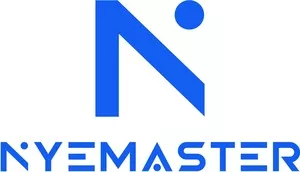- within Cannabis & Hemp topic(s)
- with readers working within the Accounting & Consultancy, Banking & Credit and Basic Industries industries
On Thursday, July 24, 2025, President Trump introduced a new Executive Order entitled "Saving College Sports." This order, if implemented, will significantly affect collegiate student-athletes at all levels—not only those currently benefiting from Name, Image, and Likeness (NIL) deals. Its stated goals include protecting and expanding women's and non-revenue sports, prohibiting third-party "pay-for-play" arrangements, clarifying the status of collegiate athletes, shielding college athletics from excessive litigation, and supporting the development of the U.S. Olympic Team. According to President Trump, college sports are a uniquely American institution that provides educational and leadership opportunities while also contributing substantially to local economies.
In 2021, the landmark case NCAA v. Alston opened the door for collegiate athletes to receive NIL compensation from third parties. Although this was a pivotal moment for student‑athlete compensation, it created challenges. It opened the door to improper inducements that could circumvent NCAA rules and fueled a rise in player transfers from smaller schools to larger programs offering more lucrative NIL deals —widening the competitive gap.
More recently, on June 6, 2025, House v. NCAA further reshaped the landscape by broadening NIL rules even further. Effective July 1, 2025, NCAA universities were allowed to directly compensate recruits and transfer students for NIL as part of official "compensation packages." While athletes must disclose NIL deals over $600 and remain enrolled in degree programs, there are otherwise few restrictions. The settlement awarded $2.8 billion in back pay to athletes who competed from 2016 to the present and imposed sport-specific roster limits.
President Trump's Executive Order responds to these developments and consists of six sections. The first, "Purpose and Policy," outlines the rationale for intervention: safeguarding non-revenue and women's sports, which help produce Olympic athletes and cultivate leadership skills. Notably, 65% of the 2024 U.S. Olympic Team consisted of current or former NCAA athletes, and 75% were former collegiate athletes. The team earned 126 medals—marking the eighth consecutive Summer Games in which the U.S. led the medal count. The executive order aims to address NIL distribution and scholarship opportunity imbalances, citing reports of some football players receiving as much as $35 million in NIL deals in 2024, which threatened the sustainability of other sports.
The second section, "Protecting and Expanding Women's and Non-Revenue Sports and Prohibiting Third-Party Pay-for-Play Payments," establishes these new requirements. Universities that generated over $125 million in revenue during the prior athletic season must increase scholarship opportunities and maximize roster spots in non-revenue sports. Those with over $50 million in revenue must at least maintain prior scholarship levels and full rosters. Those with under $50 million in revenue must not disproportionately reduce scholarship levels and roster numbers. The order permits revenue sharing with student-athletes but requires that benefits extend to women's and non-revenue sports. It also seeks to end third-party "pay-for-play" payments, meaning third-party vendors helping recruit athletes based on their large amount of revenue—except for fair market value endorsements and sponsorships.
Section three of the executive order directs the Secretary of Labor and the National Labor Relations Board to clarify whether student-athletes should be classified as employees or students. Section four instructs the Attorney General and the Chair of the Federal Trade Commission to review and revise litigation strategies and guidelines to better protect college athletics from excessive lawsuits. Finally, the order calls for collaboration with the U.S. Olympic and Paralympic Committee and related organizations to preserve America's competitive edge in developing elite athletes.
Many of the executive order's provisions are set to take effect 30 days from July 24, 2025 – on August 23, 2025. Its full impact will soon become clearer as federal agencies implement these new policies.
Thank you to Mason Holland, a 2025 summer associate at Nyemaster, for his contributions to this article.
The content of this article is intended to provide a general guide to the subject matter. Specialist advice should be sought about your specific circumstances.


